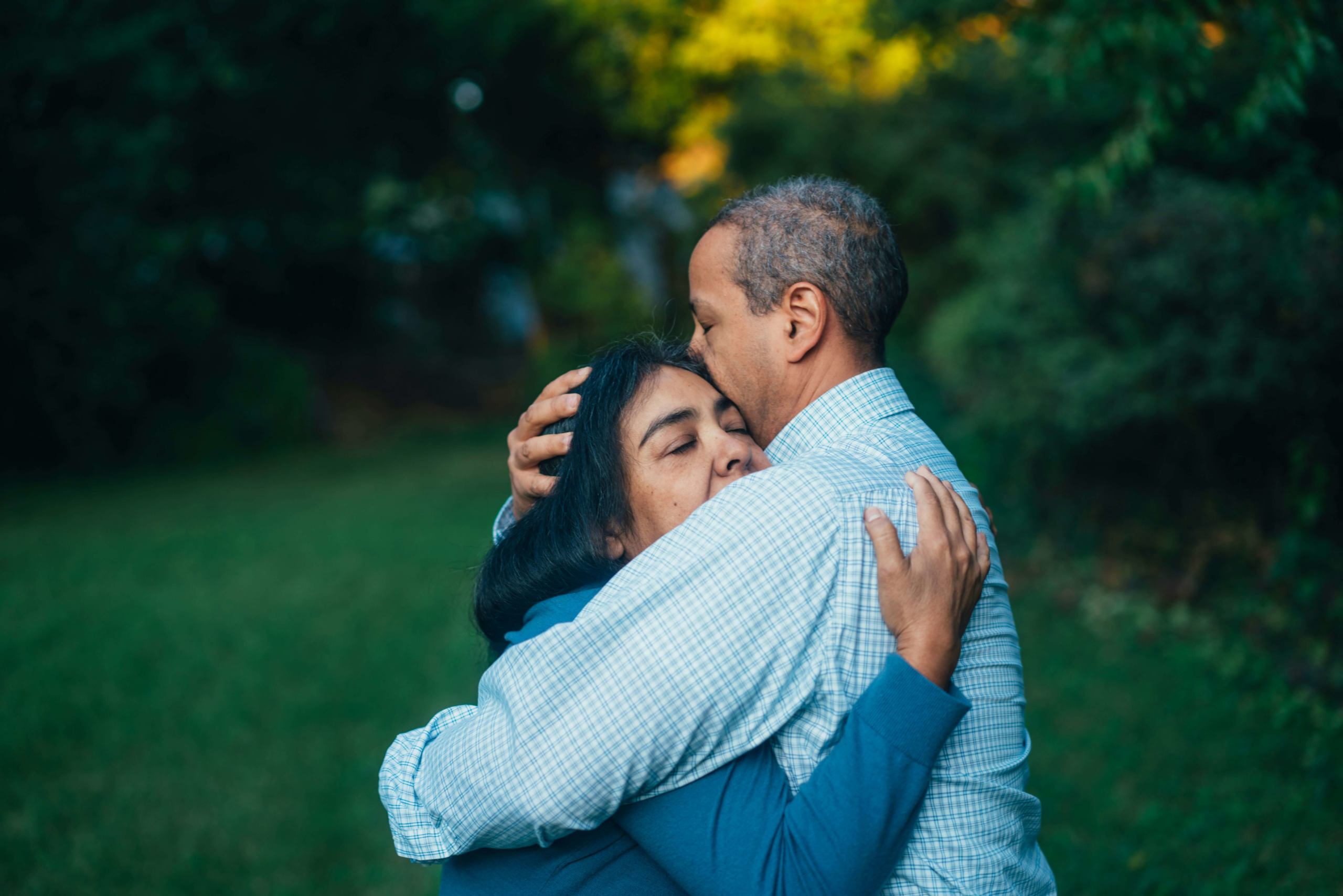A Brief Look at Trauma
Before we look at religious and spiritual trauma let’s look at a brief definition of trauma. Trauma is any event that overwhelms a person’s ability to cope with it. This can result from a one-time catastrophic event or from a prolonged series of events over time. Most trauma is relational trauma, trauma that happens within the context of relationships and usually happens repeatedly over time. When thinking about trauma it’s important to know that most individuals who experience trauma feel an impending threat to their life, safety, and well-being. Read here to learn more about trauma.
What About Religious and Spiritual Trauma?
Religious or spiritual trauma is a type of relational trauma. It stems from experiencing or living in an environment with rigid religious or spiritual beliefs. This can range from living in an extreme religious cult, an abusive religious setting, a fundamental group that was not aligned with your own core beliefs, or any other rigid and painful religious experience that left you feeling isolated, afraid, and lost. Examples include:
- A religious leader who insists on being the only source of authority for a community and who uses coercion, fear, and shame as means of control.
- A religious institution that requires financial contributions or a type of sacrifice for promised blessings and eternal life from a deity.
- Forcing members to participate in ceremonial rights or other activities for fear of punishment or going to hell.
- Stifling independent thinking and limiting information that diminishes critical thinking and the development of your own belief system.
Because there are strong messages in our culture that promote adherence to rigid and strict beliefs it’s important to look at societal factors that can contribute to religious or spiritual trauma. Religious extremism is a global phenomenon that is gaining power to shape norms and impact national policy, laws, and international relationships. Especially in areas of family and personal interest laws such as reproductive rights and immigration. What is more subtle, although becoming more glaring, is the effect rigid belief systems have on attitudes toward anyone who is outside of one’s core community. There is often a message of “good” versus “evil.” Extreme beliefs tend to breed a closed “black and white” attitude towards others and life in general. This extreme type of belief system can go hand in hand with coercion, manipulation, fear of punishment, and shameful experiences. All of which can cause trauma.
The Subtle Nature of Religious and Spiritual Trauma
I bring this up to create awareness around what can be a more subtle cause of religious or spiritual trauma. It may feel easy to identify the experience of being in a cult as one that would cause trauma. It’s not so easy to identify the more insidious nature of global messages that seep into the culture and slowly shift a person’s psychology and belief system. No religion or spiritual belief is inherently wrong and much good comes from communities of faith. With that said, if you feel you are being forced to adhere to beliefs not your own, or you feel lost in the barrage of messages, know it’s possible to make sense of your own beliefs.
Religion, rituals, and spirituality have played a key role in communities for as long as humans have walked the earth. People find comfort, peace, and hope in the opportunity to come together through shared faith and beliefs. In troubled times a like-minded community can provide the support, love, and care an individual needs to face challenges. But when a person experiences shame, fear, loss of agency, emotional or physical abuse, or any sense of emotional distress associated with such beliefs, trauma may be the result.
What is the Impact of Religious and Spiritual Trauma? What Does it Feel Like?
Religious or spiritual trauma often results in confusion about your core beliefs. It can leave you grappling with who you are separate and apart from the rigid beliefs you may have encountered. When religious or spiritual systems become a source of pain and confusion, it can feel as if you have lost your center. You might be experiencing a crisis of faith, questioning the beliefs you hold dear, or feeling betrayed by the very institution or people you trusted. This is a common manifestation of this type of trauma, and it can leave you feeling lost, disillusioned, and questioning your place in the world.
Rediscovering Self-Worth and Authentic Beliefs
This type of trauma can lead to a distorted perception of yourself. Many grow up with beliefs that just don’t fit who they are. Perhaps you grew up in an environment that was too rigid and narrow or even abusive. Regardless, self-narratives associated with harsh, authoritarian, or controlling environments often instill feelings of guilt, shame, and unworthiness. Do you find yourself grappling with a sense of self-loathing or a belief that you are fundamentally flawed? For some, just the word religion can be triggering. This can be a direct consequence of religious trauma.
You may have an inner knowing that something is not quite right but are not sure how to begin to explore your own thoughts around spirituality or religion. Know that this is a normal reaction to trauma and that with help you can discover and connect to your own beliefs. You can restore your sense of self and work towards a future where you are in alignment with your belief system.
Healing and Finding Your Belief System With Online Trauma Therapy
If you’ve had negative experiences around religion, faith, or spirituality then online trauma therapy may be a good fit. I offer a Jung-oriented depth approach to help you overcome spiritual or religious trauma. Jung’s life work, personally and professionally, was deeply rooted in understanding the spiritual dimension of human existence. He understood our spiritual needs to be “as real as hunger and the fear of death.” Because of this, depth work is a natural fit for working through trauma related to spirituality or religion.
How a Jungian Framework Works For Healing Trauma
Religion often paints a narrow or rigid view that hinders one from connection to their own belief system. Throughout his own life, Jung grappled with questions around religion and spirituality and came to believe that our need to make meaning of life, above all, was our deepest spiritual calling. If you have experienced religious or spiritual trauma, you may feel a lack of purpose or meaning. Trauma tends to rob one of meaning, purpose, and joy. A Jungian framework not only helps you face your trauma, it also helps you find greater meaning in life. Jung says, “Meaning makes a great many things endurable—perhaps everything.” Maybe you left your tradition because you are hurt and confused. Maybe you feel lost as a result? A favorite book of mine that may help you begin a new journey is The Invisible Church: Finding Spirituality Where You Are by J. Pittman McGehee, a noted Jungian analyst, and Damon J. Thomas, writer and editor. It’s a gem of a book with fresh perspectives on how to claim beliefs that feel true to you.
Healing from spiritual or religious trauma, like any relational trauma, is crucial for personal growth and healthy relationships. When unresolved, it can continue to impact your life in various ways, hindering your ability to grow and form meaningful connections. If you feel confused about your beliefs or feel you are in an unhealthy environment, reach out.
Other Therapy Services Offered by Lysle Shaw Psychotherapy in Austin, Houston, and throughout Texas
At Lysle Shaw Psychotherapy, I offer a diverse range of therapeutic services. My online sessions provide a convenient and accessible platform for you to explore your inner self, navigate life’s challenges, and embark on a transformative journey. In addition to online therapy, I also provide services in walk-and-talk therapy, individual therapy for relationship issues, and Jungian dreamwork. Check out more of my blogs here!

Recent Posts
Can You Heal From Relational Trauma? Part 1
Absolutely, you can heal from relational trauma! In this series of blog posts, I'm excited to introduce you to Gretchen Schmelzer’s Trail Guide to the 5-Phase Cycle of Healing Repeated Trauma. Gretchen, a psychologist, trauma [...]
Relationships Matter! Insights from an Online Relational Therapist in Houston, TX
Spring is upon us and here in Houston, Texas, it's likely to phase into summer heat soon. We happily got a cool snap this week and I found myself able to do my runs under [...]
Can You Recover from Religious and Spiritual Trauma? Exploring With Online Trauma Therapy in Austin, TX
A Brief Look at Trauma Before we look at religious and spiritual trauma let’s look at a brief definition of trauma. Trauma is any event that overwhelms a person’s ability to cope with it. This [...]





